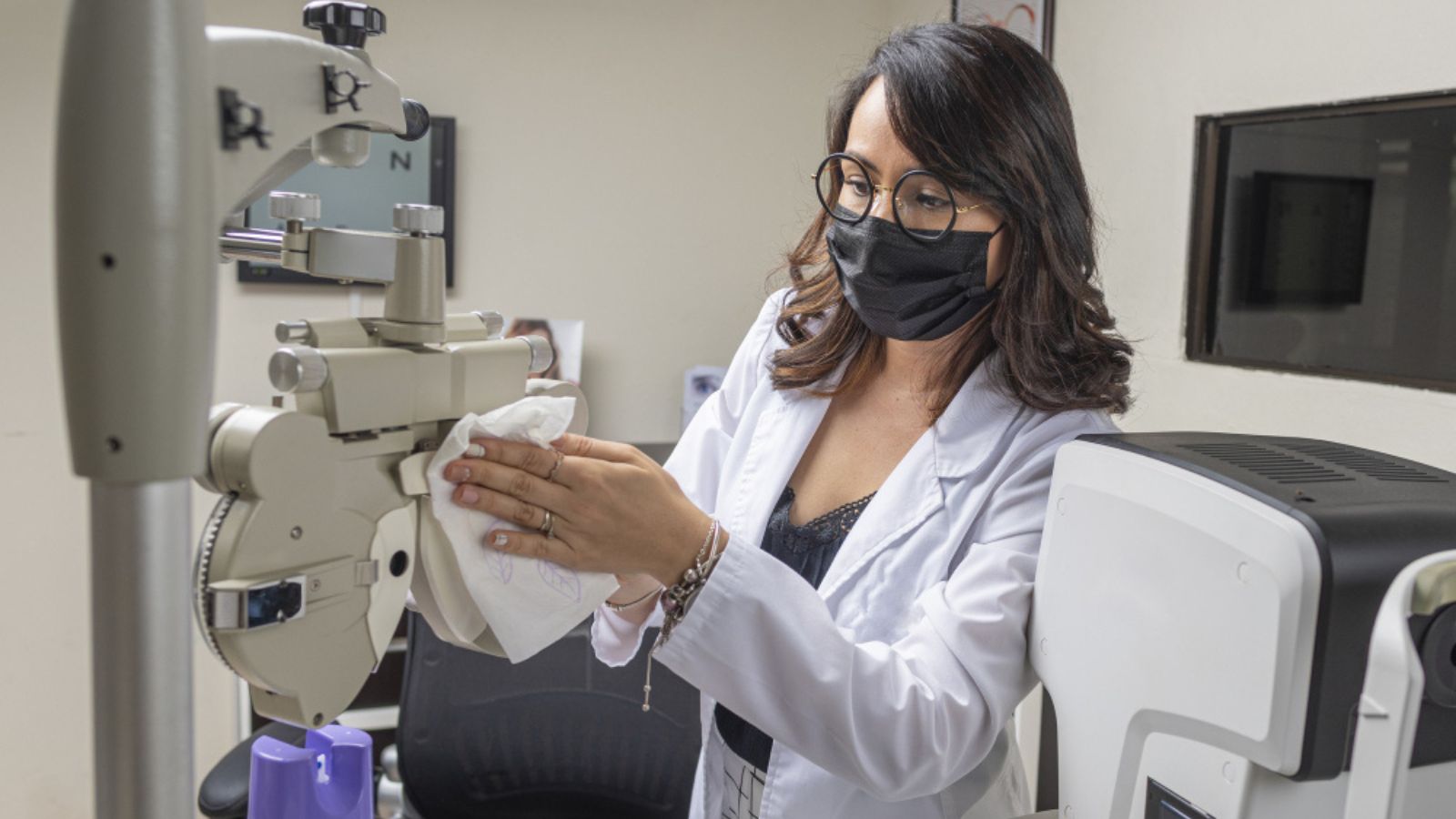
As the demand for skilled eye care professionals continues to rise, pursuing a Bachelor of Optometry (B.Optom) degree has become a promising career path. For students in West Bengal looking to embark on this journey, choosing the best Bachelor of Optometry course in West Bengal is crucial. This comprehensive guide, presented by Haldia Institute of Management, aims to provide aspiring optometrists with all the necessary information to make an informed decision and pave the way for a successful career in eye care.
Optometry is an autonomous healthcare profession focused on primary eye and vision care. Optometrists are highly trained professionals who examine, diagnose, treat, and manage diseases, injuries, and disorders of the visual system. Their scope of practice includes prescribing and dispensing corrective lenses (glasses and contact lenses), providing vision therapy, and rehabilitating patients with low vision. They play a vital role in detecting systemic conditions that may manifest in the eyes and often collaborate with other healthcare professionals, including ophthalmologists.
Why Choose a Career in Optometry?
The field of optometry offers a stable and rewarding career with diverse opportunities. As lifestyle changes and increased screen time contribute to a rise in vision-related issues, the need for qualified optometrists is consistently growing. A B.Optom degree opens doors to various career avenues:
- Clinical Optometrist: Working in private practices, eye clinics, or hospitals, performing eye examinations, prescribing corrective lenses, and managing ocular diseases.
- Community Optometrist: Engaging in public health initiatives, conducting vision screenings, and providing eye care services in underserved areas.
- Pediatric Optometrist: Specializing in eye care for children, addressing developmental vision problems.
- Low Vision Optometrist: Assisting individuals with significant visual impairments, recommending assistive devices and rehabilitation strategies.
- Contact Lens Specialist: Focusing on complex contact lens fittings and patient management.
- Ocular Disease Specialist: Managing and treating various eye conditions.
- Educator/Researcher: Contributing to academic institutions and advancing the field through research.
- Optical Industry: Working with optical manufacturers or retail chains.
- Entrepreneurship: Establishing and managing your own optical practice.
The profession offers good earning potential, job stability, and the satisfaction of improving people's quality of life by preserving and enhancing their vision.
Key Aspects of a Quality Bachelor of Optometry Program
When evaluating the best Bachelor of Optometry courses in West Bengal, consider the following factors:
1. Comprehensive Curriculum
A strong B.Optom program should offer a curriculum that balances theoretical knowledge with practical skills. Key subjects typically include:
- Human Anatomy and Physiology: General and ocular anatomy and physiology.
- Optics: Geometrical, physical, and visual optics.
- Ophthalmic Instrumentation: Understanding and operating various diagnostic tools.
- Clinical Optometry: Techniques for comprehensive eye examinations, refraction, and dispensing optics.
- Contact Lenses: Principles, fitting, and management of contact lenses.
- Binocular Vision and Orthoptics: Diagnosing and managing eye alignment and coordination issues.
- Ocular Diseases and Pharmacology: Identification, management, and pharmacological treatment of eye conditions.
- Low Vision Aids & Rehabilitation: Assisting individuals with visual impairment.
- Public Health & Community Optometry: Addressing eye care needs at a population level.
- Research Methodology & Biostatistics: Fundamentals of research and data analysis.
- Professional Ethics and Communication: Essential skills for patient interaction and professional conduct.
Many programs also include subjects like Biochemistry, Microbiology, and Nutrition, which provide a holistic understanding of health.
2. Clinical Exposure and Internship
Practical, hands-on training is indispensable in optometry. The best programs offer extensive clinical exposure through:
- Well-equipped Laboratories: Modern labs for practical sessions in optics, contact lenses, and diagnostic techniques.
- Clinical Rotations: Opportunities to work in eye clinics, hospitals, and community health centers under the supervision of experienced optometrists and ophthalmologists.
- Mandatory Internship: A crucial component, typically a 12-month program, where students gain real-world experience by examining patients, diagnosing conditions, and managing various eye care scenarios. This often takes place in affiliated eye hospitals and optical retail chains.
Institutions with strong ties to reputable eye hospitals and clinics in West Bengal enhance the learning experience and provide valuable networking opportunities.
3. Experienced Faculty
The quality of faculty significantly impacts a student's learning experience. Look for programs with:
- Experienced Optometrists and Ophthalmologists: Faculty members who are not only academicians but also seasoned practitioners, bringing real-world insights to the classroom.
- Dedicated Mentorship: Faculty who provide guidance and support to students throughout their academic and clinical training.
4. Infrastructure and Facilities
A conducive learning environment is supported by:
- Modern Classrooms: Equipped with visual aids and technology.
- Advanced Laboratories: Stocked with the latest optometric instruments and diagnostic equipment.
- Resourceful Library: Access to a wide range of books, journals, and online resources relevant to optometry.
- Clinical Facilities: On-campus clinics or strong affiliations with off-campus hospitals for patient interaction and practical training.
Career Prospects After Bachelor of Optometry Course from HIM
Graduates from Haldia Institute of Management's B.Optom program are well-prepared for diverse career opportunities. Our alumni have successfully secured positions in:
- Leading eye hospitals and clinics in West Bengal and across India.
- Reputed optical retail chains.
- Public health initiatives and community eye care programs.
- Opportunities for higher education, including Master's and Ph.D. programs in Optometry.
- Entrepreneurial ventures, establishing their own optical practices.
Choosing the right Bachelor of Optometry program is a significant step towards a rewarding career in eye care. In West Bengal, Haldia Institute of Management offers a robust and industry-aligned B.Optom course that provides students with the knowledge, skills, and practical experience needed to thrive as competent eye care professionals. If you are an aspiring individual with a passion for vision science and a desire to make a difference in people's lives, we invite you to explore the opportunities available at Haldia Institute of Management. Contact us for more information.
